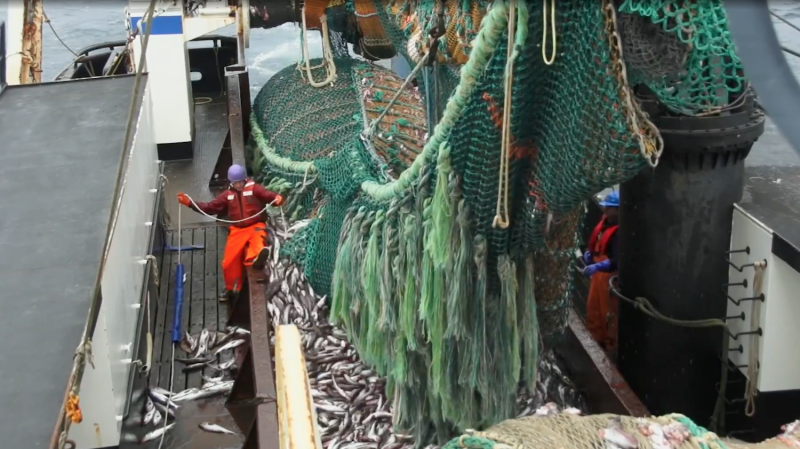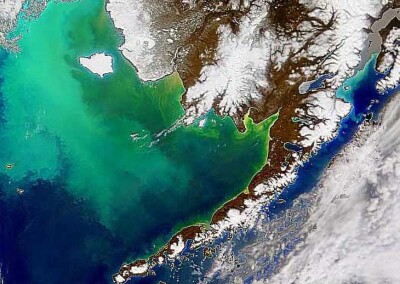Alaska tribal leaders from the Yukon and Kuskokwim rivers regions filed a federal lawsuit Monday against the National Marine Fisheries Service, seeking a new review of groundfish catch limits in the Bering Sea and Aleutian Islands.
Years of restricted chinook and chum salmon seasons have resulted from salmon bycatch in the pollock trawl fishery, contends the lawsuit by the Association of Village Council Presidents and Tanana Chiefs Conference, now represented in court by the nonprofit environmental law group Earthjustice.
The lawsuit claims NMFS “relied on outdated environmental studies and failed to consider monumental ecosystem-wide changes that have occurred in the Bering Sea and Aleutian Islands ecosystems over the last two decades.”
Subsistence fishing in the Yukon and Kuskokwim regions has been cut back over years. Tribal advocates who say salmon bycatch is a major factor are pressuring NMFS and the North Pacific Fishery Management Council to put more restrictions on bycatch in the pollock trawl fishery.
Since at least 2007, western Alaska chinook salmon stocks have been in decline, followed by collapses in chum and coho salmon stocks over the last three years, the lawsuit says.
The court action is the latest salvo from battling Alaska fishing factions. Advocates for the trawl fisheries are on the defensive against crab fishermen, salmon groups and other critics.
On Monday SalmonState executive director Tim Bristol said the council is “putting herring, king salmon, chum salmon, crab, halibut, and traditional ways of life on the chopping block so trawlers can keep trawling.”
SalmonState said the council on April 8 “threw out the guidance of the advisory boards they charged with developing this very proposal and assigned the National Marine Fisheries Service (NMFS) to start again from square one in proposing a cap. This decision postpones any meaningful action for this fishing season at the very least.”
Environmental changes have scrambled longtime fisheries management, the tribes’ lawsuit says.
“Meanwhile, radical ecosystem changes have negatively affected conditions for Chinook and chum salmon rearing in the ocean,” according to a statement from the tribes and Earthjustice. “The federal government’s current fisheries management decisions prioritize maximizing groundfish catch over protecting the subsistence rights of Alaska Native peoples who are deeply impacted by those decisions.”
“The federal government continues its ‘business as usual’ deliberate and ineffective management style as our people suffer and our waters are forever harmed,” said Vivian Korthuis, chief executive officer of the Association of Village Council Presidents.
Tribal advocates say “the Yukon-Kuskokwim region is one of the most cash-poor regions of the state, making the salmon harvest particularly important for food security as well as the continuation of the region’s cultures. Households share salmon with other households and communities to ensure that all community members have enough to eat. Since at least 2007, western Alaska Chinook salmon stocks have been in decline, followed by collapses in chum and coho salmon stocks over the last three years.”







